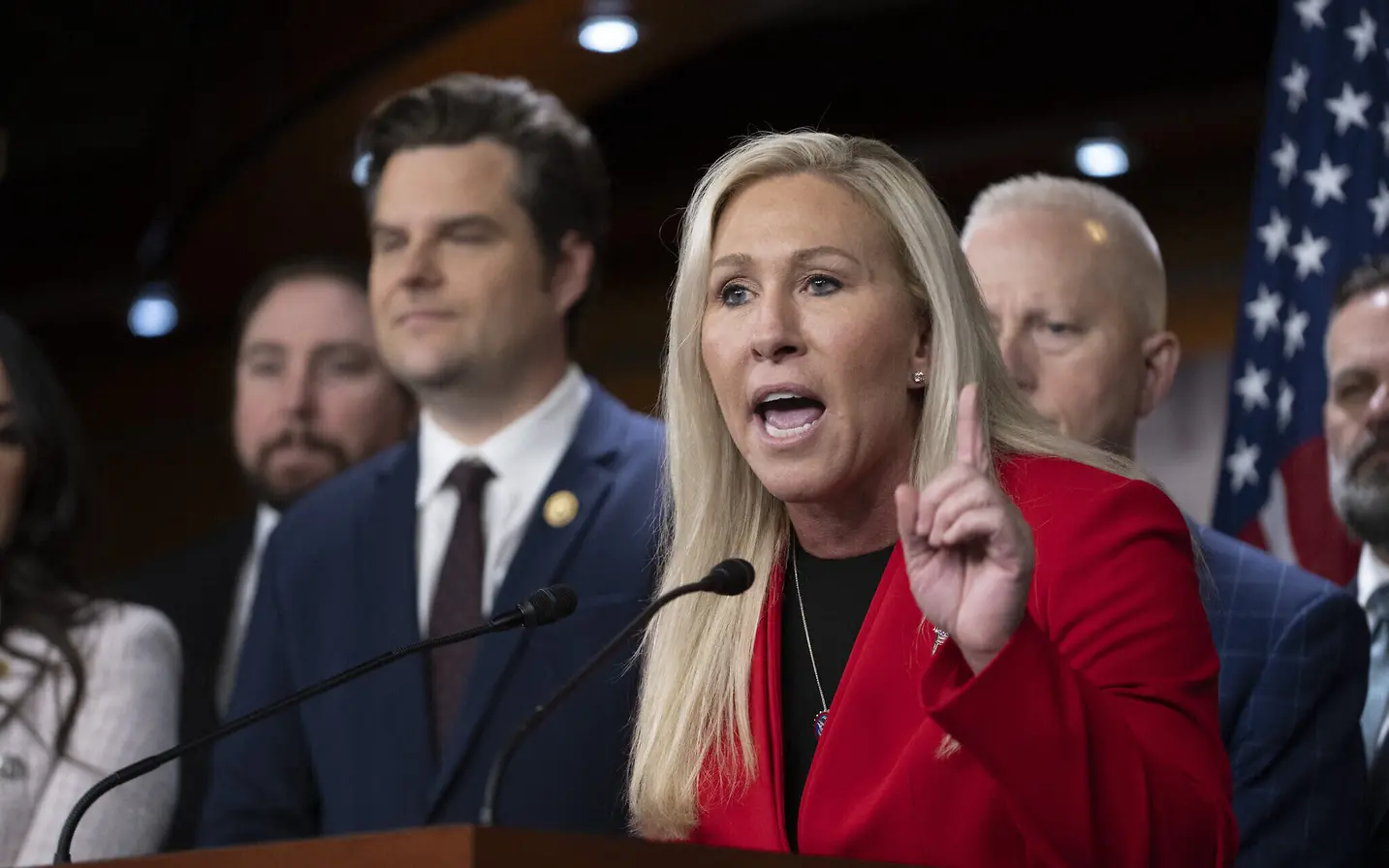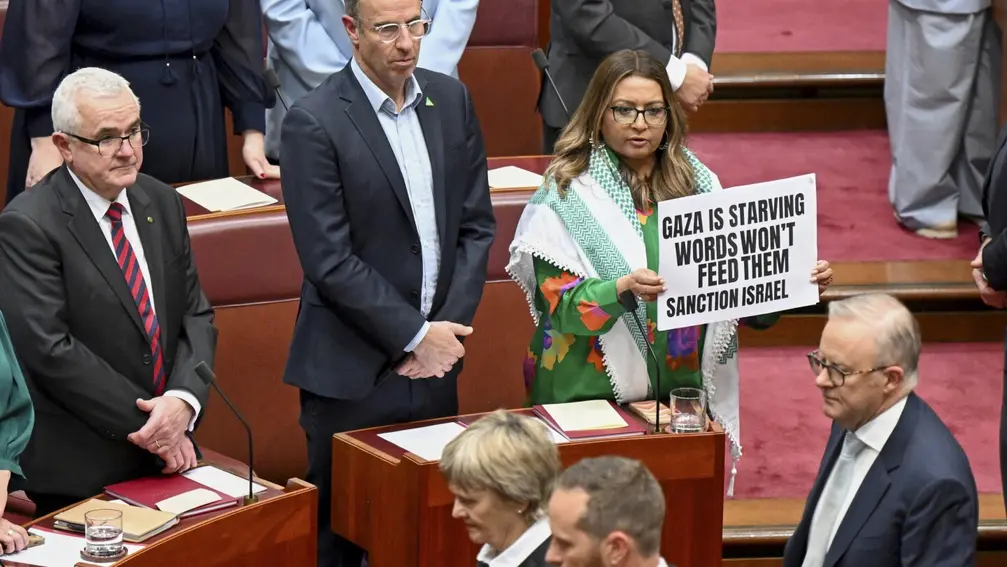T4K3.news
NZ lawmaker ejected again over Gaza debate
Chlöe Swarbrick refused to apologize for calling opponents spineless during a Gaza debate; Parliament sanctions her for the second time.

Chlöe Swarbrick faces a second ejection after refusing to apologize for calling opponents spineless during a Gaza debate and the chamber imposes a pay docking.
New Zealand lawmaker ejected again over Gaza debate
WELLINGTON New Zealand AP. A Green Party lawmaker, Chlöe Swarbrick, was ejected from Parliament on Tuesday after calling opponents spineless during a debate on sanctions against Israel over the Gaza war. Speaker Gerry Brownlee ordered her to withdraw the remark and leave the chamber for the day. She received a three day ban, a length rarely used in New Zealand, and Swarbrick returned on Wednesday only to be ejected again when she refused to apologize.
Brownlee later named Swarbrick for misconduct, and the suspension includes pay docking. The case comes as New Zealand weighs recognizing an independent Palestinian state, a move supported by some leaders and opposed by others within the government. Prime Minister Christopher Luxon has signaled that a decision will come in September after further review, while stressing that the international community is watching how the country handles this issue.
Key Takeaways
"If we can find six of 68 government MPs with a spine, we can stand on the right side of history"
Swarbrick during the debate on sanctions against Israel
"Withdraw it and apologize"
Speaker Brownlee ordering Swarbrick to withdraw from the chamber
"Happily"
Swarbrick's brief response after being banned
"Netanyahu has lost the plot on the human catastrophe in Gaza"
Prime Minister Luxon commenting on the Gaza crisis
The episode tests how a small parliament balances free speech with order. Enforcing a formal punishment pinning pay to conduct shows a desire for decorum, but it also raises questions about consistency given recent exceptions in other cases and the political context of a heated Gaza debate.
Beyond procedure, the incident underscores how foreign policy questions enter domestic politics. As NZ ponders recognizing Palestine, language in the chamber becomes part of a larger argument about leadership, values, and the limits of dissent. The outcome may influence how parties argue about global issues at home and how voters judge parliament’s tone and fairness.
Highlights
- free Palestine
- Withdraw it and apologize
- We stand on the right side of history
- If we can find six of 68 government MPs with a spine
Parliamentary clash prompts political risk
The ejection and pay docking carry potential backlash and could be used by opponents to argue uneven enforcement of rules. The broader push around recognizing Palestine increases sensitivity for domestic politics and may invite public debate about how decorum is applied.
The coming weeks will reveal how New Zealand navigates principle and politics on a sensitive international issue.
Enjoyed this? Let your friends know!
Related News

Knesset supports declaration for Israeli sovereignty over West Bank

Marjorie Taylor Greene calls Israel's actions in Gaza genocide

Netanyahu weighs suit against New York Times

Australia’s Parliament resumes with pro-Palestinian protests
Democrats oppose FBI tracking Texas lawmakers

Sabrina Carpenter's album cover causes controversy

London Gaza hostage march

J Street leader admits shift on Israel's Gaza actions
